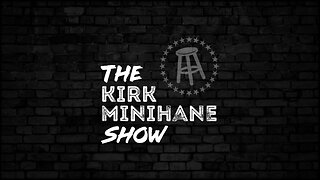Premium Only Content

The Crucial Role of ISF Agents and Customs Brokers in Customs Documentation
ISF Checklist || 805-970-7918 || contact@isfchecklist.com || www.isfchecklist.com
Welcome back to our video series on customs brokerage and international trade. In today's episode, we will be focusing on the responsibilities of ISF agents and brokers in customs documentation. Understanding these responsibilities is crucial for importers and exporters who want to ensure smooth and compliant international transactions.
ISF agents play a significant role in the customs documentation process. Their primary responsibility is to electronically file the Importer Security Filing on behalf of the importer. This filing includes vital information such as the shipper's identity, consignee, container stuffing location, and more. Accurate and timely submission of the ISF is crucial to avoiding penalties, delays, and disruptions in the supply chain.
Customs brokers, on the other hand, have a broader scope of responsibilities. They are experts in interpreting complex customs regulations, tariff classifications, and valuation methodologies. In addition to handling the ISF filing, customs brokers also manage all aspects of customs clearance. They communicate with customs authorities to ensure compliance and handle any required documentation and standards.
Ensuring compliance with customs regulations is a critical task for ISF agents and customs brokers. They must stay updated on ever-changing regulations, trade agreements, import quotas, and other trade restrictions that may impact the importation process. Compliance is necessary not only for adhering to the law but also for preventing penalties and delays.
Proper document management and record-keeping are a vital part of customs documentation. ISF agents and customs brokers must maintain accurate records of all transactions to ensure audit readiness and provide necessary documentation when requested by customs authorities. This includes records of invoices, shipping documents, bills of lading, and more. Having organized and accessible records facilitates a smoother customs clearance process.
Effective communication and collaboration are crucial for ISF agents and customs brokers to fulfill their responsibilities. They must maintain open lines of communication with importers, exporters, carriers, and customs authorities. Clear communication ensures that all relevant parties are informed about the status of shipments, potential issues, and necessary changes to documentation. Collaborating with various stakeholders ensures a streamlined and efficient customs clearance process.
In conclusion, understanding the responsibilities of ISF agents and brokers in customs documentation is essential for importers and exporters in navigating the complexity of international trade. Their role in accurately preparing and filing ISFs, ensuring compliance, managing documentation, and facilitating communication is critical for success in international transactions. Thank you for watching, and stay tuned for our upcoming videos, where we will continue to explore the fascinating world of customs brokerage and international trade.
#usimportbond #isfcustomsbroker #uscustomsclearing #isfentry
Video Disclaimer Here: This video is purely educational and has no ties with the US government.
00:29 - Role of ISF Agents and Customs Brokers*: ISF agents are responsible for electronically filing Importer Security Filings (ISFs) with accurate and complete information to ensure compliance and avoid penalties. Customs brokers have a broader role, overseeing customs clearance, interpreting regulations, and communicating with customs authorities.
00:54 - Importance of Compliance and Record-Keeping: Both ISF agents and customs brokers must stay updated on changing customs regulations to ensure compliance and prevent delays. Proper document management and record-keeping are essential for audit readiness and facilitating smooth customs processes.
02:51 - Communication and Collaboration: Effective communication among ISF agents, customs brokers, importers, exporters, and customs authorities is crucial for addressing potential issues and ensuring an efficient customs clearance process. Collaboration among stakeholders helps streamline international trade operations.
-
 LIVE
LIVE
The Quartering
47 minutes agoHuge Update In Cybertruck Attack & Dark New Details From New Orleans Attacker & More!
5,009 watching -
 LIVE
LIVE
Tate Speech by Andrew Tate
9 hours agoEMERGENCY MEETING EPISODE 99 - 2024 - TIME VACUUM
16,358 watching -
 26:14
26:14
Breaking Points
1 hour agoSH*TSHOW: FBI Retracts False Info on NOLA Attacker
7.67K10 -
 56:35
56:35
The Dan Bongino Show
4 hours agoReprise: Best Episode Of 2024 - 01/02/2025
140K764 -
 16:04
16:04
Tundra Tactical
2 days ago $0.36 earnedHow Palmetto State Armory got so BIG!
5842 -
 25:19
25:19
Feeding the Byrds
1 hour ago3 EASY DINNERS for a BUSY week! | Easy dinner inspiration
3.27K -
 6:44
6:44
SLS - Street League Skateboarding
7 days agoYuto Horigome’s 2nd Place Finish at SLS Tokyo 2024 | Best Tricks
3.1K1 -
 LIVE
LIVE
hambinooo
3 hours agoTarkov Thursday
445 watching -
 2:22:31
2:22:31
The Kirk Minihane Show
5 hours agoKMS LIVE | January 2, 2025 - ft. Blind Mike & Beer Stud
55.9K3 -
 46:12
46:12
Grant Stinchfield
1 day ago $2.30 earnedWhere is DOGE When You Need it? Billions Wasted, Newsom Smiles!
13.2K9